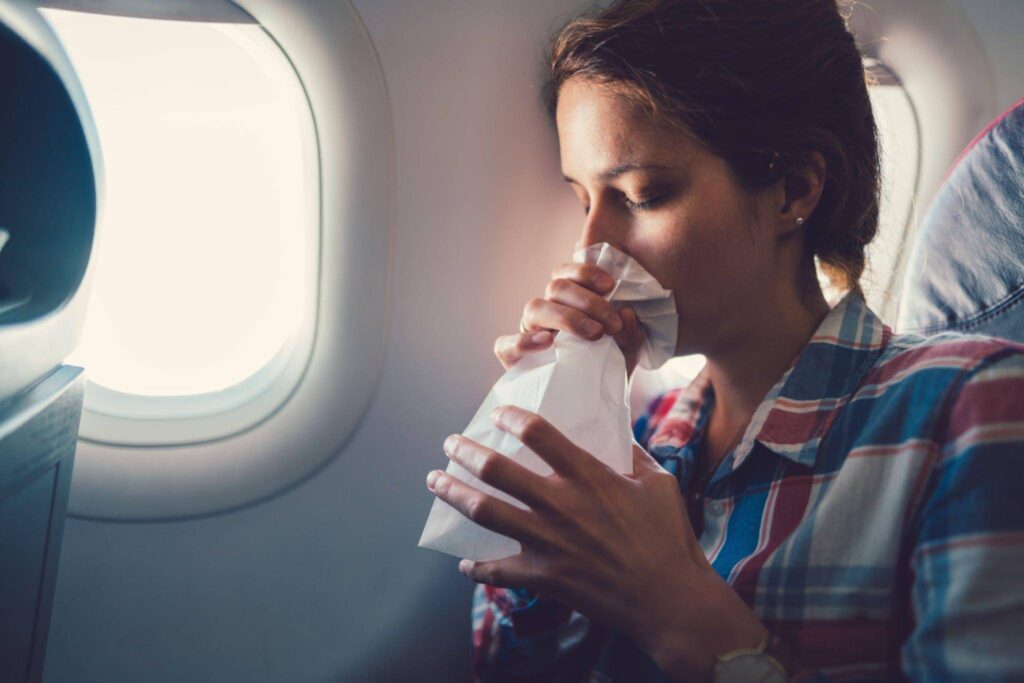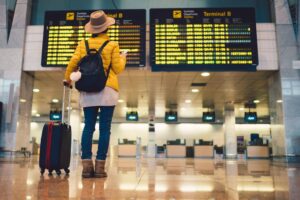Low-level anxiety has the potential to help you when traveling; it’ll make sure you’re prepared for your trip, and you’re not left packing to the last minute or forgotten anything – but the other end of the scale is homophobia, an extreme fear of travel that can make even the thought of going away fill you with dread.
As we approach summer, many of us will be looking forward to getting away for a while, but some may be feeling less excited.
According to Google trend data, searches for “scared to travel” have risen by 400% in the last two months. Bespoke travel experts Go2Africa explain how you can help minimize travel anxiety, so you can enjoy traveling without fear!

Identify What’s Triggering You
Blog Contents
The first step is to try and work out exactly what is causing the anxiety and fear. If it’s memories of a past disastrous trip that’s causing the issue, try and be more specific and pinpoint what went wrong and how it affected you. Was it the flight? Is it the thought of getting lost, or ill, in another country?
Losing your luggage? Running out of money? Knowing what your triggers are can make it much easier to overcome the anxiety as you can work on specific worries, rather than fearing the idea of travel entirely.
Make It Easier For Yourself
Simple things, like making sure you’ve put your liquids within easy reach when you go through airport security so you don’t have to fumble for them while you’re at the front of the queue, can make the traveling experience a lot less stressful.
Don’t leave packing to the last minute – and make a detailed packing list that you can tick off as you go, so you can be sure you haven’t forgotten a thing. Pack essentials and a change of clothes in your hand luggage, so you’re not left with absolutely nothing if your suitcase is lost.
Make sure you have travel insurance in place so you’re covered if you fall ill, things are canceled, or you lose anything – some of the biggest anxiety triggers can be calmed with just a few minutes spent on an insurance comparison site!
If you know things like caffeine or alcohol make you feel anxious, avoid them for a few days leading up to your trip. Your early morning flight might seem tough without a coffee, but it’s worth being a bit tired if it means you’re not adding to your anxiety unnecessarily!
Have A Plan B
Have backup plans ready to go, in case of any issues arise. No matter far in advance you book things and how prepared you are, things beyond your control can go wrong. Have contingency plans in place, like knowing when the next flight is, in case your flight is canceled last minute.
Knowing exactly what plan B is can help decrease anxiety because if something does go wrong, you won’t need to panic – you already know exactly what to do.
Prepare For Your Arrival
Have solid plans in place for when you arrive. This doesn’t necessarily mean a detailed itinerary for each day, but make sure you know exactly how you’re getting to your accommodation and do a little research on the local area.
Find the phone number for local taxi companies in case your hotel transfer doesn’t turn up and work out how to use the public transport, so you don’t need to try and download and translate an app with confusing bus routes when you’ve just arrived.
Get Someone To Take Care Of The Planning For You
Whether it’s just a week in the sun or a once-in-a-lifetime luxury safari, speaking to experts who can plan and organize everything for you is a great way to be able to unwind a little more. They’ll be able to tailor-make the trip to your exact specifications, and they can handle everything so you can just enjoy the trip without the stress.
Practise Relaxation Techniques
Take some time to practice relaxation techniques like deep breathing, meditation, or yoga in the lead-up to your trip, not just on the day you travel. The more you practice, the easier it’ll be to overcome the symptoms of travel anxiety when they’re at their most powerful.







